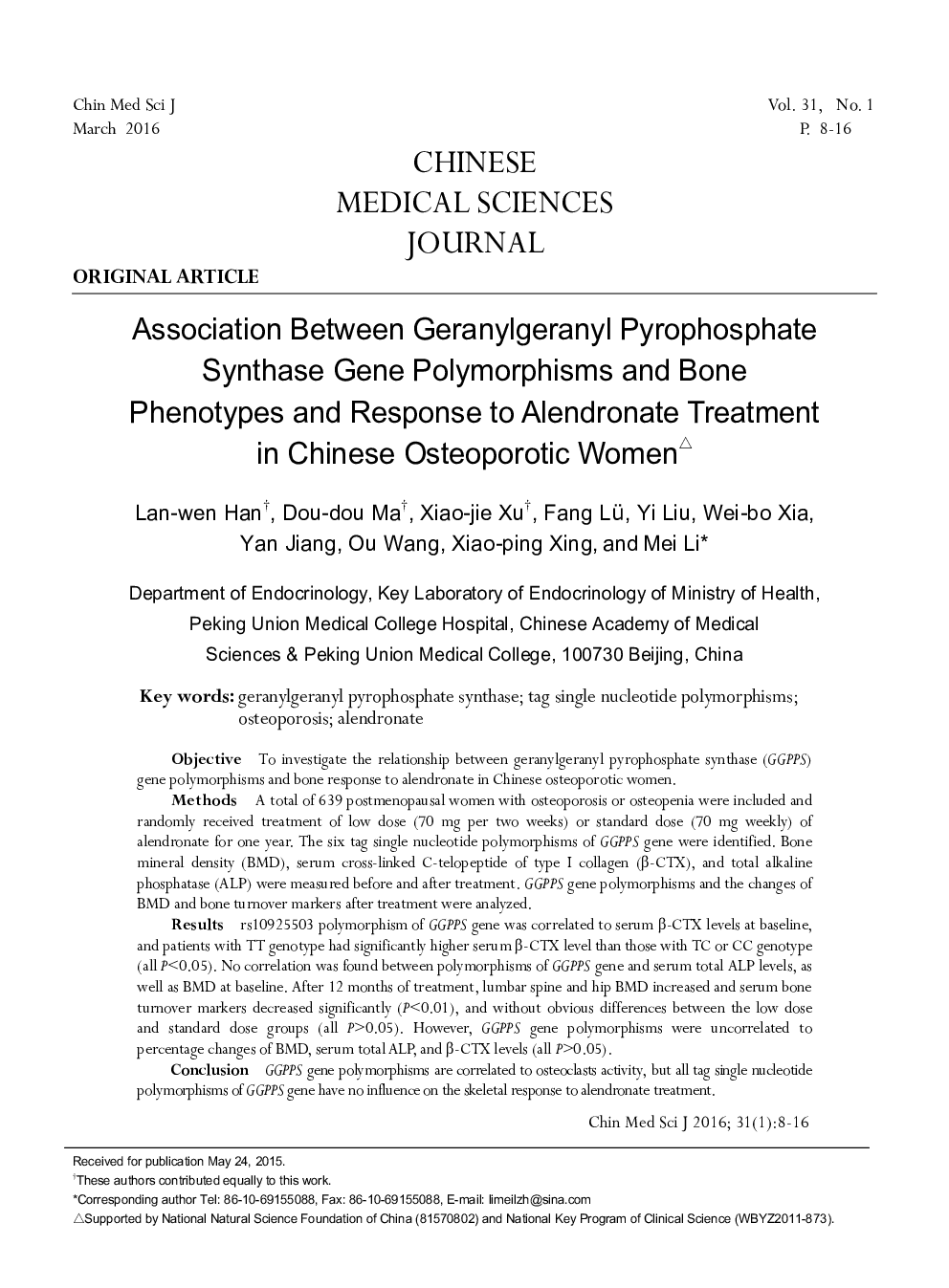| Article ID | Journal | Published Year | Pages | File Type |
|---|---|---|---|---|
| 3459425 | Chinese Medical Sciences Journal | 2016 | 9 Pages |
ObjectiveTo investigate the relationship between geranylgeranyl pyrophosphate synthase (GGPPS) gene polymorphisms and bone response to alendronate in Chinese osteoporotic women.MethodsA total of 639 postmenopausal women with osteoporosis or osteopenia were included and randomly received treatment of low dose (70 mg per two weeks) or standard dose (70 mg weekly) of alendronate for one year. The six tag single nucleotide polymorphisms of GGPPS gene were identified. Bone mineral density (BMD), serum cross-linked C-telopeptide of type I collagen (β-CTX), and total alkaline phosphatase (ALP) were measured before and after treatment. GGPPS gene polymorphisms and the changes of BMD and bone turnover markers after treatment were analyzed.Resultsrs10925503 polymorphism of GGPPS gene was correlated to serum β-CTX levels at baseline, and patients with TT genotype had significantly higher serum β-CTX level than those with TC or CC genotype (all P<0.05). No correlation was found between polymorphisms of GGPPS gene and serum total ALP levels, as well as BMD at baseline. After 12 months of treatment, lumbar spine and hip BMD increased and serum bone turnover markers decreased significantly (P<0.01), and without obvious differences between the low dose and standard dose groups (all P>0.05). However, GGPPS gene polymorphisms were uncorrelated to percentage changes of BMD, serum total ALP, and β-CTX levels (all P>0.05).ConclusionGGPPS gene polymorphisms are correlated to osteoclasts activity, but all tag single nucleotide polymorphisms of GGPPS gene have no influence on the skeletal response to alendronate treatment.
